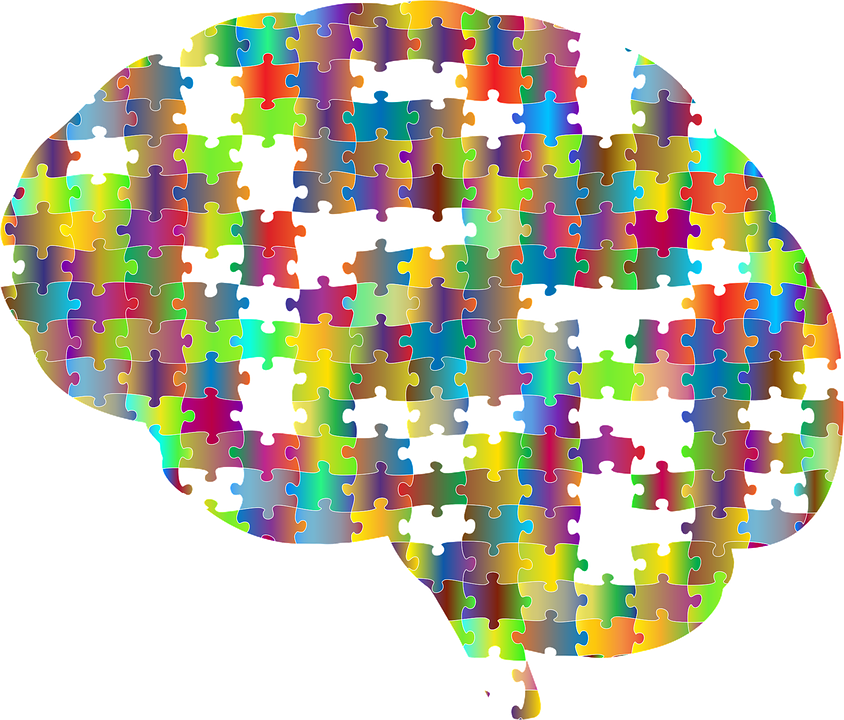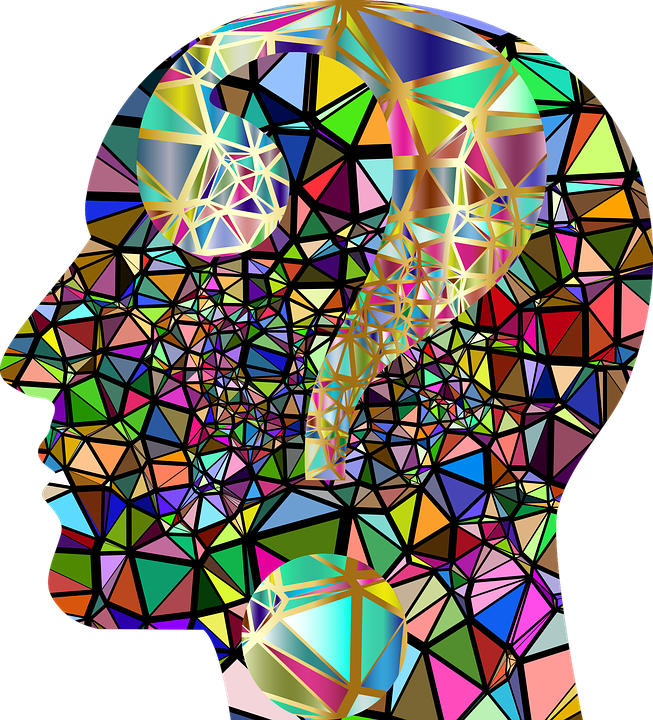
For this, we usually carry out an analytical reasoning based on a logical analysis of the events. The problem is that this type of processing is not always effective, sometimes a more complete understanding is needed not only of the situation, but also of oneself.

Differences between the two types of reasoning
What is Analytic reasoning:
Analytic reasoning is the use of logic that is independently true. In other words, no experience or information about the world is necessary to interpret analytic reasoning. In common usage, the term analytic reasoning is more loosely defined as thought and arguments based on facts. | Source
Analytical reasoning refers to the ability to look at information, be it qualitative or quantitative in nature, and discern patterns within the information. What exact pattern the individual is trying to discern depends on the item in which he is interested. The pattern could be the structure the author of the information uses to structure an argument, or trends in a large data set. | Source
Science has already proved the close relationship between mental and body processes. The mind, given the context, creates a series or orders for the organism to follow, so that it adapts to the situation that we are living. Physiological changes are then produced in the body, which we perceive as sensations.

An emotion is usually composed with different sensations, for example: sadness is usually experienced with tension in the chest or throat; fear with agitation in the gut; joy with a feeling of warmness and general tickling, etc. With negative emotions, we usually start our analytical reasoning looking for the logical sequence of actions that leads us to the most appropriate solution.
What is Abstract reasoning:
Abstract Reasoning assesses your ability to identify patterns amongst abstract shapes where irrelevant and distracting material may lead to incorrect conclusions. | Source
Abstract thinking is the ability to think about objects, principles, and ideas that are not physically present. It is related to symbolic thinking, which uses the substitution of a symbol for an object or idea. | Source
However, sometimes it is better to approach an abstract reasoning, that is able to provide us with more relevant information about the issue we are handling. This type of reasoning makes us connect with our intuition, that manifests itself in the form of familiar images, symbols or sensations, difficult to articulate with language.

Example of different types of reasoning
Imagine, how would you react if your partner started to be disrespectful to you in public. Surely negative feelings will appear. By trying to handle this situation applying an analytical reasoning, we may begin to justify the reasons for our anger and based on that we will look for a solution, by thinking something like: "I was calm, I spoke well and I was answered badly. The fault is not mine, so either I ignore you, or I start to speak badly as well", or you might try to understand the other person might had a bad day, and therefore the reaction wasn’t personal against me so, in which case there would be no reason to worry.
It is likely that none of these thought sequences will make unpleasant emotions disappear. We can study the problem to its last details, but we will still feel bad. Our head tells us that we already have the solution, but our body does not follow it, the feelings of discomfort continue there.
If, on the other hand, we spend time researching ourselves, we may perceive that the situation has caused us a feeling of emptiness, as if the hurtful words of our partner, having been repeated in other contexts with other people, would have generated a hole inside us, which causes us impotence and a feeling of being underappreciated. As a solution we decide to speak about it, expressing to our partner how this behavior makes us feel. By identifying our feelings and the information they carry about us and our experiences, we can more easily connect with our true needs and consequently seek more effective solutions.

It is the abstract reasoning that usually is the most difficult to accomplish, because we for the most part receive an education that consists in teaching us how to find logical explanations, and the faster the better. But our feelings do not usually operate under mathematical laws, we are not machines (for now) and therefore in the problems that concern us, especially in those that hurt us the most, a different perspective should be adopted in order for us to overcome whatever difficulty there is. Sometimes we need to do a bit of self analysis to see what is emotionally at stake for us.
These behaviors are examples of abstract reasoning:
- Using metaphors and analogies;
- Understanding relationships between verbal and non-verbal ideas;
- Spatial reasoning and mentally manipulating and rotating objects;
- Complex reasoning, such as using critical thinking, the scientific method, and other approaches to reasoning through problems. | Source

How to put abstract reasoning into practice?
As an example you could follow the following advises, based on the Focusing technique. It is about giving you an idea of how the process can be, since to get the most out of it it is recommended that, at least initially, to be guided by a professional in a therapeutic context. In any case you can make a first approach to see what things come out or what aspects you become aware of.
But first, lets define what is the Focused technique:
Focusing is a body-based technique that helps to confirm inner knowing … this ability … is a fundamental human ability that most people in Western cultures have lost. Yet all it takes is quiet and the patience to attend to vague physical impressions, until they become defined and meaningful. | Source
Close your eyes and spend a few minutes relaxing your body, breathing deeply. Now focus on the sensations of your body. If you feel tension in your stomach, imagine that you make an inner trip to your gut. Enter it, as if you entered a room and imagine that you have in front of you the problems that are generating this tension. Images, symbols or words may appear.

Focus on one, the one with the most significance. Give that image a name that fits perfectly with your sensations. Have patience and always wait for the words to come from your gut and not from your head, for a moment it quiets the logical part of the mind. Then, as if you were a curious spectator, look to see if under that image there is another at its root and put a name again (there is nothing wrong if no other image appears).
You should ask it some questions and wait patiently for an answer, remember that you have a curious attitude, like when you listen to someone and you do not know what the person is going to say.
If you named the image as “knot” for example, you should ask questions like:
- Why are you like that?
- What are you afraid of?
- What do you need to feel free?
- What would happen if you
- What are you trying to protect yourself from?
There are other techniques such as meditation, Mental Rest or Mindfulness that focus on the awareness of the body and stop the most analytical processes that take place in the mind. Developing several types of reasoning is healthy since each of them have their functionality, but we must avoid to allow only one dominating our way of thinking because this will make us more difficult to face certain life’s situations and the problems that arise from time to time. I always say balance is key in order to have a good and happy life, and this of course applies perfectly in the way we approach our issues, not all issues can be solved using the same type of reasoning, this is why being flexible in this aspect can increase our health over the long term.

Conclusion

In life, there are all type of situations and different circumstances we will have to eventually, experience. Since not all of said situations and circumstances are the same, the best way to approach them can vary depending on the contexts, therefore, our own interpretation should be adapted as well as our own way of reasoning.
Because of this, we should develop different techniques that influence our thought process and our actions, so that we are able to handle every difficult by applying the appropriate technique that is able to give us the best results or the best solution in case we are facing a problem.
By “diversifying” our mental tools, we will certainly have a better time in life, and it will make it easier for us to achieve any goals we have for ouselves.
References
simplicable – analytic reasoning
classroom – analytical reasoning
goodtherapy - abstract reasoning
Images sources
All images are from free sources
1 , 2, 3 , 4 , 5

If these titles sound interesting to you, I assure you the articles will be even better!

Today's lesson: What does 1 year means? What are its origins?
Agoraphobia: the fear of going outside
Thoughts about the importance of Mental Rest
LHC: What is it? | What is its importance for Humanity?
Take your time to appreciate your awesomeness!
Why was the discovery of the Higgs Boson (and Science in general) so important for our lives?
"A Day in the Future": An artificial personal assistant… inside our head
Diogenes syndrome: my family case (with Steem exclusive pics)
